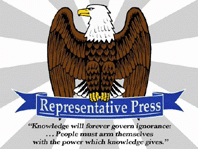"In many respects, the elections were successful. The main success, however, is being mentioned only marginally, by a few reporters: the US was compelled to allow them to take place.
That is a real triumph of non-violent resistance, for which Sistani has been the symbol. The US sought in every possible way to avoid elections, but has been compelled to back down, step-by-step. First, it tried to ram through a US-written constitution. That was barred by a Sistani fatwa. Then it tried to impose one or another device (caucuses, etc.) that could be controlled completely. Also blocked by non-violent resistance. It continued until finally the US (and UK, trailing obediently behind) had no recourse but to allow an election—and of course, the doctrinal system went into high gear to present it as a US initiative, once it could no longer be avoided. The US also sought to undermine it as much as possible, e.g., by driving independent media out of the country (notably al-Jazeera, the most important), by ensuring that its own candidates, particularly Allawi, would be the only ones to have access to state resources to reach the public (most candidates had to remain unidentified), etc. But the US-UK couldn’t block the elections, greatly to the distress of Washington and London. The question now is whether they can be compelled to accept the outcome. There’s little doubt, even from the more serious mainstream press as well as from polls and from properly hawkish experts (like Anthony Cordesman) that people voted with the hope that it would end the occupation. Blair announced at once, loud and clear, that the prospect is not even being contemplated, clearly articulating his usual contempt for democracy.
Washington also announced that the US military forces would stay at least into 2007, whatever Iraqis want. The more serious press, like the Wall St Journal, is reporting that the US is attempting to secure some kind of agreement on a “vague promise” to withdraw eventually." -Chomsky - Two perspectives on the U.S. occupation of Iraq
Monday, November 28, 2005
Subscribe to:
Post Comments (Atom)


















No comments:
Post a Comment